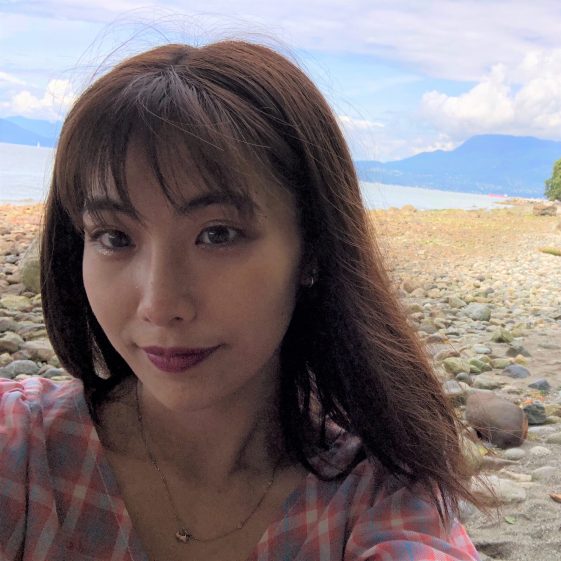Caroline Ding

| Home Town | Taizhou, China |
| Previous Education | B.E. Food Science and Engineering, Nanjing Agricultural University |
Why did you apply for the Master of Land and Water Systems?
As a former food science student, I did not expect that I would ever study another major other than food science or nutrition. I have always known that the environment, especially the soil condition and water resources, directly affects the final quality and safety of agricultural products. Also, at present, when all the world’s nations reach a consensus surrounding sustainable development, my homeland, China, is faced with unprecedented challenges. Even though the Chinese government has been sparing no efforts working on environmental protection and public awareness, the sad truth is that many fertile lands have been overused and most of the freshwater resources have been polluted to various degrees.
Initially, I applied for Master of Food Science, but when I recalled my four years of study in food science, especially after spending two and a half years with many young scientists doing basic research from my sophomore year, I felt like no matter how trivial my contribution was, I had achieved a something and made a difference. That was when I read the description of the Master of Land and Water Systems on the website. It is not a completely strange territory since it has so much connection to my major. Another reason I eagerly wanted to study at UBC is that I know it is one of the top universities, not only in Canada but also in the world. So if I applied for both programs I would have a greater chance of getting enrolled. I applied with no hesitation but never quite expected that I would get an offer. When I received the letter of enrollment, I thought it might be the best result. I have witnessed so many food safety incidents in China and now I can finally fully comprehend the causes from a whole different angle. I believe the most felicific thing in the world is learning new knowledge. When I find how new knowledge is linked to what I already know, it is even more surprisingly joyful.
What are you most excited about learning in the MLWS program?
The most exciting part is that I can use my previous learning as a backup and supplementary. Hopefully, I will be able to apply all the new knowledge I am going to learn to the problems in our land and water systems, and also to food quality and safety. This program provides me with the chance to gain perspective on many interdisciplinary subjects, greatly changing my mode of thinking. Thinking outside the box is so vital in problem-solving, yet it is hard to find. With the next year’s research and learning, I believe I will acquire the ability to think multidimensionally.
What are some of your favourite hobbies?
I enjoy spending my leisure time watching movies, hiking and visiting museums.